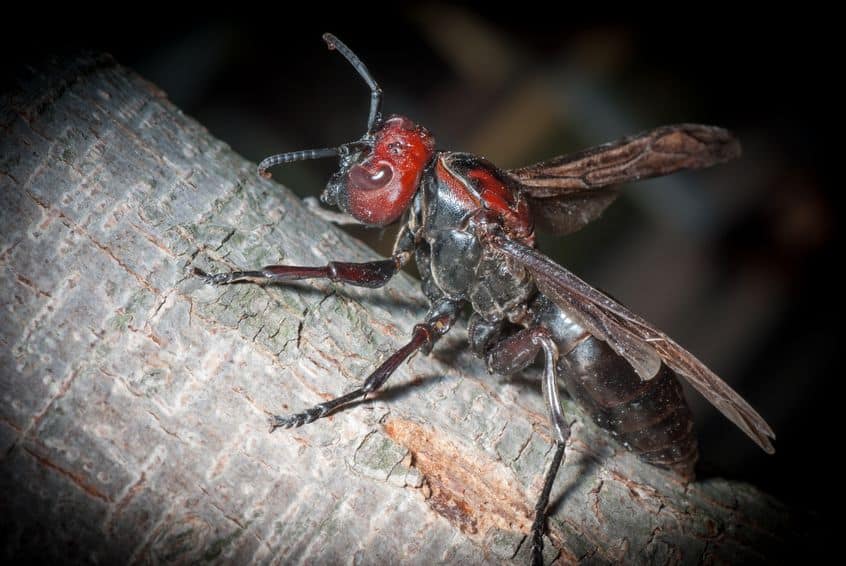You might be trying to think if you have ever seen a wasp flying around at night.
Most wasp species do not fly at night as they have compound eyes that are not very sensitive to light, so require a lot of light to be effective. Hornets do fly at night, however, enabled by their larger eye size. A few exceptions also exist in South America, such as, the Apioca that utilizes moonlight.
Let’s take a closer at why the compound eye limits vision at night.
What are compound eyes?
Compound eyes found in wasps and other insects contain thousands of individual photoreceptors all with their own cornea and lens. Each individual receptor builds an overall picture. The receptors focus on different points giving the wasp an excellent range of vision. This explains why flies, wasps, and other insects are so hard to catch.
Why do compound eyes limit the wasp’s ability to see in the dark?
Despite the advantages of the increased viewing angle and ability to detect fast movement achieved with a compound eye, it also means that these insects don’t have great image resolution compared to animals with single apertures eyes. This low image resolution means that the wasp needs more light to be able to see effectively.
Are wasps active at night?
With the exception of a few species in South America and hornets, wasps are mostly not active at night. This is welcome news if you are hoping for a rest bite from wasps invading your barbecue or if you want an opportunity to remove their nests more safely. Once it gets dark most wasps will return to their nests.

How can hornets fly at night?
Hornets are attracted to light and will be drawn to light sources at night. Even hornets can not fly in pitch darkness but can be active in twilight. It is `theorized that because hornets are larger in size than other wasp species they also have larger eyes. These larger eyes provide them with more vision than smaller wasp species. It is likely they only fly in familiar areas in dim light. See this article about wasps’ eyesight.
Wasps also have 3 ‘regular’ eyes that appear as 3 small dots on their head between the compound eyes. These eyes will also help the wasps to navigate in slow light.
Do wasps sleep at night?
Although most wasps do not fly at night they are not sleeping all night long. If you shine a bright light into their nests at night they can respond rapidly. Wasps will use the night to attend to their nests and the developing larvae in the nest. The wasp larvae developing in the nest are totally dependent on food brought back to the nest in the form of cut-up insects.
Are any species of wasp nocturnal?
Some wasps, such as the Apioca wasp, found in South America, despite having compound eyes have evolved to be nocturnal. This has allowed them to avoid predators. Some species are even able to fly through forests in the dark and search for food. This is only possible when there is a bright moonlight, however.
It has been surmised that these wasps despite having bad vision at night are processing the limited visual signals to form a map in their head through memory. More research is ongoing to discover exactly how these wasps are able to fly and navigate in the dark.
